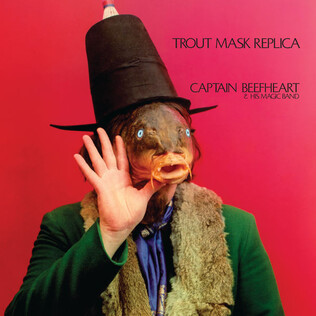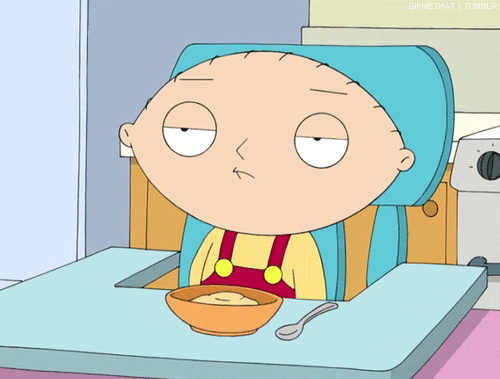 Album title: Trout Mask Replica
Artiste:
Album title: Trout Mask Replica
Artiste: Captain Beefheart and His Magic Band
Nationality: American
Label: Straight/Reprise
Year: 1969
Grade: B
Landmark value: One of the most important albums in the field of experimental music and art rock (it says here) Trout Mask Replica failed to set the world alight when it was released, completely flopping (like a trout on the riverbank. Sorry) but as is often the case, history has apparently recognised its importance and the mad genius that was Don Van Vliet, and today it is revered as one of the founding albums of out-there music. I would probably have to agree, despite my own feelings about it.
Track Listing: Frownland/ The dust blows forward 'n the dust blows back/ Dachau blues/ Ella Guru/ Hair Pie: Bake 1/ Moonlight on Vermont/ Pachuco cadaver/ Bills corpse/ Sweet sweet bulbs/ Neon meate dream of a octafish/ China pig/ My human gets me blues/ Dali's car/ Hair Pie: Bake 2/ Pena/ Well/ When Big Joan sets up/ Fallin' ditch/ Sugar 'n' spikes/ Ant man bee/ Orange claw hammer/ Wild life/ She's too much for my mirror/ Hobo chang ba/ The blimp (mousetrapreplica)/ Steal softly thru snow/ Old fart at play/ Veterans Day poppy
Comments: Oh boy! I'll try to keep my own negative view of this out of it, but don't blame me if I begin ranting. Anyway, this is the second time I'll have to suffer through this so seconds out, round two! No hitting below the belt, let's have a good clean fight. Place yer bets! And so we're off with a kind of rock song with what sounds to me to be most of the instruments playing independently of each other, very confusing, with Beefheart's growl over the whole thing. Next up is what sounds like some sort of folk song sung
acapella, while “Dachau blues” is I guess basically a Delta blues style song with sharp guitar. I can certainly see where Tom Waits would develop his sound listening to this. Track's not too bad to be fair. “Ella guru” has that hard sharp guitar again, and now it sounds like someone is slowly strangling a violin to death for five minutes. “Moonlight on Vermont” does at least bring some music back into the frame, and we're at the end of side one.
Death seems to haunt the first two tracks, with “Pachucho cadaver” kicking things off with a rather catchy rhythm, not a bad song to be fair. Could do without the squeaky horn, but that's just me. Continuing on the same theme them we get “Bills corpse” (it's spelled without the apostrophe, so, you know...) which is a short, manic track leading into “Sweet sweet bulbs” which is a nice boppy blues style tune. You know, it's odd, but listening to this I've realised just how much Waits ripped off Beefheart's style. I used to think he was unique, but from the time he started emulating the Captain (around the time of
Heartattack and Vine, certainly in full flight by
Swordfishtrombones, which even shows Beefheart's penchant for running words together) he really just became a copy of him. Sobering thought. Back to the album though.
I have absolutely no idea what “Neon meate dream of a octafish” is meant to be, but what else is new? At best I guess it's an exercise in expressionism or art gone mad. “China pig” has that Delta blues stripped-down feel, “My human gets me blues” is a rocky madcap tune, and one minute of hard banging guitar ends side two, bringing us into “Hair Pie: Bake 2” which is at least a whole lot more tuneful than “Hair Pie: Bake 1” on the first side. “Pena” is mostly speech, particularly manic speech near the end, sounds female, but may not be. “Well” is another short track, just over two minutes with an
acapella rendering of what sounds like a folk song, then “When Big Joan sets up” is the longest song on the album at just over five minutes, another madcap rocker. I've nothing to say about “Fallin' ditch”, but “Sugar 'n spikes” hops along nicely, and “Ant man bee” takes us three-quarters of the way through the album.
Another
acapella folk song-thing to open side four with “Orange claw hammer”, “Wild life” brings back the guitar (Jesus! Even Waits's guitar player sounds like this!) as does “She's too much for my mirror” and well, it ran into the next track without me noticing. Now he's shouting about “The blimp!” (which I find really annoying) before we get to “Steal softly though snow” which kind of continues the ideas explored in “Wild life” and “She's too much for my mirror” as we head towards the end of the album. “Old fart at play” is mostly spoken against a jangly guitar which is pretty good to be honest, and we end on another long track, four and a half minutes of a bluesy “Veterans Day poppy”. Well, kind of bluesy. In parts. Hey, it's Beefheart! Leave me alone!
Favourite track(s): Dachau blues, Moonlight on Vermont, Sweet sweet bulbs
Least favourite track(s): Pretty much everything else
Overall impression: Second time in, not as bad as I remembered, but still not an album I would listen to for pleasure, nor one I expect ever to listen to again. Not, to be fair, what I would consider in any way part of the progressive rock movement; certainly I can see his influence on art rock, experimental music and avant-garde, but prog? Don't see it. Might as well call Tom Waits a progressive rock icon. Nevertheless, given that so many musicians in all fields cite this album, and the place it occupies in rock history, it has to get the top Legacy rating, even if my own is a lot more modest and represents my personal view of the album.
Personal Rating:  Legacy Rating:
Legacy Rating:  Final Rating:
Final Rating: 
















:format(jpeg):mode_rgb():quality(90)/discogs-images/R-4921547-1379496242-1495.jpeg.jpg)

 Linear Mode
Linear Mode
